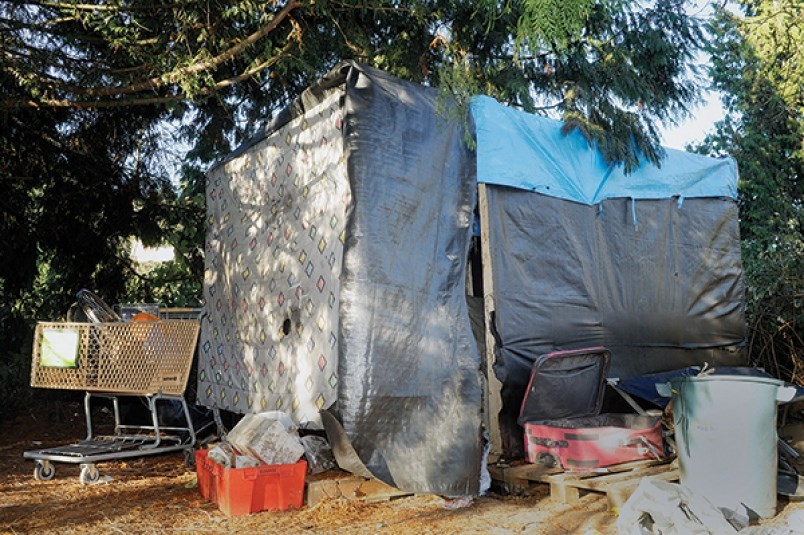Staying indoors and self-isolating during the COVID-19 pandemic is not an option for many of the Tri-City’s homeless people.
And as the novel coronavirus continues to spread, housing advocates worry the situation could become critical for the region’s most vulnerable population.
“My own feeling is its dire,” said Sandy Burpee, a past chair of the Tri-Cities Homelessness Task Group. “I don’t know how you manage it… It really does bring the whole issue to its head when you confront a situation like this.”
He added that it would be difficult to stop the spread of COVID-19 someone in the homeless community contracted the disease.
While outreach workers are constantly reminding people to wash their hands, avoid crowds and never share needles or pipes, Burpee said the message does not always get through to people who may have mental health and addiction issues.
“Someone who is on the streets, particularly if they are into drugs, keeping your hands clean and keeping your distance is not a high priority,” he said.
Without other health care options, the homeless are already more likely to end up in the emergency room, a problem Burpee said will likely increase given the pandemic.
The spread of the virus comes at a time when many options for the homeless are shutting down for the season.
The Emergency Weather Response shelter, which operates out of Trinity United Church in Port Coquitlam when the temperature dips below zero, shut down Monday, March 16.
And on March 13, the Hope for Freedom Society (HFFS), which operates the bridge shelter out of rotating church basements between October and March, announced it would be ending the program early this year as a result of the pandemic. In a message to stakeholders, the society said they could no longer reasonably secure the safety of the volunteers, clients and staff. The statement also noted HFFS has been unable to secure supplies, like masks, screening kits and other safety items.
“The health authority at this point is unable to issue anything in the way of directives or contingency plans,” HFFS said in the statement.
Andrea Corrigan, the executive administrator of the society, told The Tri-City News it is redirecting clients it normally serves to other shelters still in operation.
She noted that many people who live on the streets or struggle with addictions have compromised immune systems and are more susceptible to infections.
“[Hope for Freedom] is deeply concerned for the welfare of the homeless people as well as the vulnerable adults we have in residence in our treatment programs,” Corrigan said. The fact the homeless are “already in a position to have weakened immune systems and a susceptibility to infections, and unclear path to treatment when the virus is caught, highlights how marginalized those we serve truly are.”
It is not just finding a place to go at night that is a problem for people living on the streets.
Polly Krier, the current chair of the Tri-Cities Homelessness Task Group, said with the closing of community centres and libraries, the homeless have nowhere to go during the day.
“The sunshine makes it a bit easier,” she said. “But it is hard to see them in a position where they have no place to go during the day and at night.”
However, Krier said the closing of municipal recreation facilities to the general public could present an opportunity for to create temporary services for homeless people. She added that she would like to see the cities offer space for some kind of programming for those with no place to go.
“All of the resources could be funnelled into one or two locations that are now sitting vacant,” she said. “We don’t have to worry about the public coming in and out.”
MORE INFO
The Hope for Freedom Society is still meeting with clients to discuss basic needs, find housing options and offer support with rental subsidies where possible. Showers are also available at the society’s offices on weekdays. There is also a to-go meal that is being made available every evening in March organized by CityReach and Eagle Ridge Bible Fellowship.



